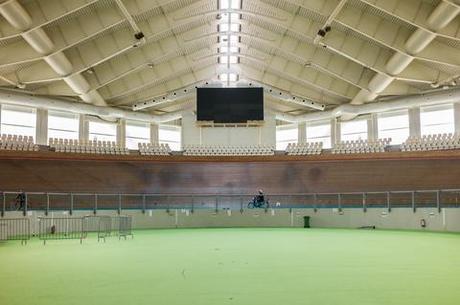
Olympic Velodrome, OAKA, Athens. Photo by Jon Pack.
“Any time you’re doing that much construction and development from scratch, you’ll have problems,” Hustwit says. “How it’s affecting people in Sochi is harder to gauge. But who knew Sochi two years ago? It’s fantastic branding.”
It appears like they didn’t learn the lessons of Athens, says Hustwit. Sochi is a purpose-built site with no demand, and it’s hard to know how some of the post-Olympic plans for the facilities (casino resorts, training center for the Russian football team) will pan out.
Hustwit and Pack, who have already documented past host cities such as Athens, Moscow and Sarajevo, plan to visit Sochi in a few years, to see how the site has evolved.
“This is about afterwards,” he says. “It’s not about an agenda, it’s just showing what’s it’s like It’s most interesting to see when things return to normal. Cities are long-term experiments.”
It’s a coin toss as to whether future cities will find more sustainable ways to host the Olympics. But, there’s hope -- according to Hustwit, the IOC already ordered a few copies of the book.
You can find out more about the Olympic City Project here. A photo exhibit featuring images from the project will be on display at Block 37 in Chicago (29 W. Randolph Street) through March 7th.
